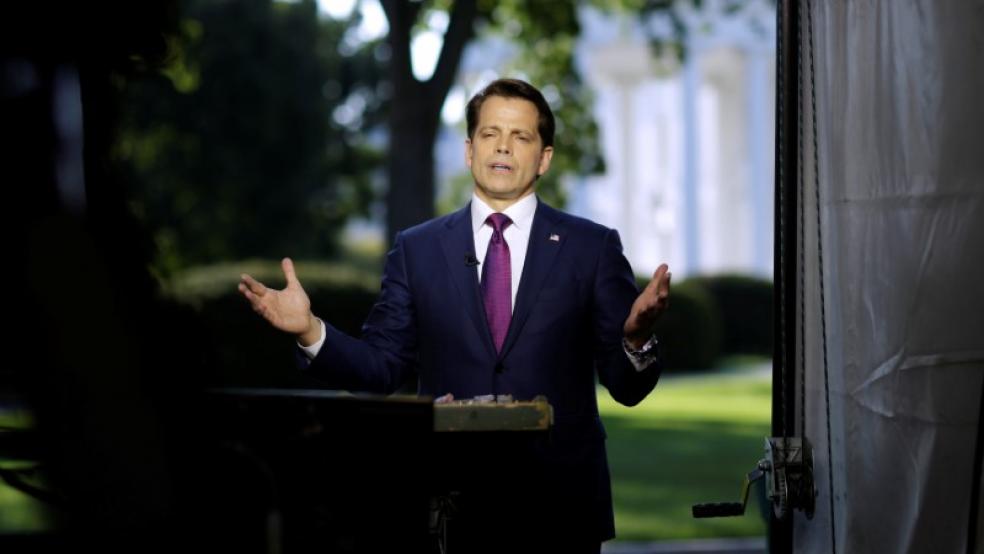With Green Party presidential candidate Jill Stein’s quest to recount the votes in three states running into serious problems, the latest long-shot hope for people still convinced that Donald Trump can be prevented from becoming president is a rebellion within the Electoral College. But just as Stein’s effort to seek out voting irregularities in Wisconsin, Michigan and Pennsylvania seemed a vain effort even before it started, so does the dream of electors banding together to overthrow the results of the election.
As most of us learn in middle school civics and quickly forget, when voters cast a ballot for president they are actually choosing “electors” who have pledged to cast their votes for a specific candidate when the Electoral College convenes a few weeks after the election. Each state has the same number of electors as it has members of the House and Senate combined. Whichever presidential candidate manages to receive 270 votes in the Electoral College is made president.
Related: The Campaign Promise Congress Won’t Let Trump Keep
Historically, the Electoral College vote has largely been a formality, with the individual electors obediently casting their votes in line with the majority of their states’ voters. However, over the years, there have been occasional cases of “faithless electors” -- so called because they broke faith with the voters by casting their ballots for candidates other than those they promised to support.
While faithless electors have never had a real effect on a presidential election, there is good reason to believe that the Founding Fathers believed the electors were meant to be something other than a rubber stamp for the electorate as a whole. Writing in Federalist Papers No. 68, Alexander Hamilton defended the Electoral College in part by insisting, “The process of election affords a moral certainty, that the office of President will never fall to the lot of any man who is not in an eminent degree endowed with the requisite qualifications.”
The intervening 228 years have brought many changes to the system that Hamilton described -- including state laws mandating winner-take-all distribution of electoral votes -- but the latest dream beguiling anti-Trumpers is that the spirit of Hamilton will persuade Republican electors to abandon their party’s candidate and cast their votes for someone else.
The poster-child for this movement is Chris Suprun of Dallas, a Republican elector who has declared his intention to vote for someone other than Trump.
Related: How the Electoral College Can Turn a Definite Presidential Winner Into a Loser
“I was told if we elected Donald Trump he would transform his personality into being presidential. He isn’t,” Suprun told the Associated Press. “I wanted him to be presidential, but since the election he hasn’t grown into our institution, he’s attacked them. I am here to elect a president, not a king.”
However, so far there doesn’t appear to be a wave of Republican defections on the horizon. And, in the event there were enough holdouts to cause Trump to fall short of the 270-vote threshold, the law would throw the election to the House of Representatives, who would be required to choose a president from the candidates who received the most electoral votes. A Republican House would almost certainly install Trump as president.
In fact, as Cato Institute scholar Michael F. Cannon writes in The Washington Post, the most plausible Electoral College strategy for avoiding the ultimate selection of Trump involves the 232 electors pledged to Hillary Clinton banding together behind a different Republican and convincing a few dozen Trump electors to join them.
“The only way Democrats stand any chance of persuading Republican electors to abandon Trump is with a dramatic gesture of true bipartisanship,” Cannon says. “If all 232 Democratic electors pledge to reach across the aisle and vote for a Republican alternative to Trump, it would take just 38 GOP electors to make that person the next president. If Clinton announced she is releasing “her” electors and asked them to vote for a credible Republican alternative, she could plausibly deliver all 232 Democratic electors.”
Related: Why Both Trump and Obama Are Wrong About How to Save American Jobs
But even in the age of social media and news with instantly national reach, it’s worth keeping in mind another of Hamilton’s observations about the Electoral College. One of its selling points, he wrote in Federalist 68, is that manipulating hundreds of electors, who are required by law to hold no federal office and whose commission expires with the casting of their votes, would be all but impossible. While Hamilton’s major concern was corruption, his point applies as well to an organized effort to overturn the results of an election.
“Their transient existence, and their detached situation, already taken notice of, afford a satisfactory prospect of their continuing so, to the conclusion of it,” he wrote. “The business of corruption, when it is to embrace so considerable a number of men, requires time as well as means. Nor would it be found easy suddenly to embark them, dispersed as they would be over thirteen States, in any combinations founded upon motives, which though they could not properly be denominated corrupt, might yet be of a nature to mislead them from their duty.”





